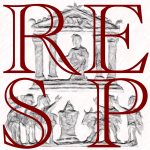RESP is an international collaborative project led by Prof. Dario Calomino in the Department of Cultures and Civilisations of Verona University (Italy).
The project is run in partnership with two UK institutions: King’s College, Department of Classics (London) and Warwick University, Warwick Manufacturing Group (Coventry). The members of the RESP Research Team are listed below.

Verona University
Prof Dario Calomino (Principal Investigator)

Dario Calomino is Associate Professor of Numismatics in the Department of Cultures and Civilisations. He is a classical archaeologist specialised in Greek and Roman coinage. He holds a BA/MA in Classical Archaeology from Padua University and a PhD in Ancient History from Verona University. His main fields of interests rest within Roman art, archaeology and economic history. His research centres on the economic, political and cultural life of the provincial cities of the Roman Empire, mainly in the 3rd century AD, and focuses especially on the reception and reinterpretation of Roman imperial imagery and ideology in the eastern provinces. Dario has worked at the British Museum Department of Coins and Medals as a British Academy Newton Research Fellow in 2012-2013 and as a Project Curator in 2014-2017. In 2016 he curated the exhibition Defacing the Past. Damnation and Desecration in Imperial Rome in gallery 69a. He served on the council of the Royal Numismatic Society in 2013-2016 and on the council of the Roman Society in 2017-2020. He has worked at Warwick University’s Department of Classics in 2017-2020 as a team member of the project Materiality and meaning in Greek festival culture of the Roman Imperial period and he currently is a member of the Roman Provincial Coinage research team. He has worked with many Italian Museums (Verona, Venezia, Brescia, and Rovereto) and currently collaborates with the Medagliere of Museo Nazionale Romano to publish their collections of Roman provincial coins.
Julia Lenaghan
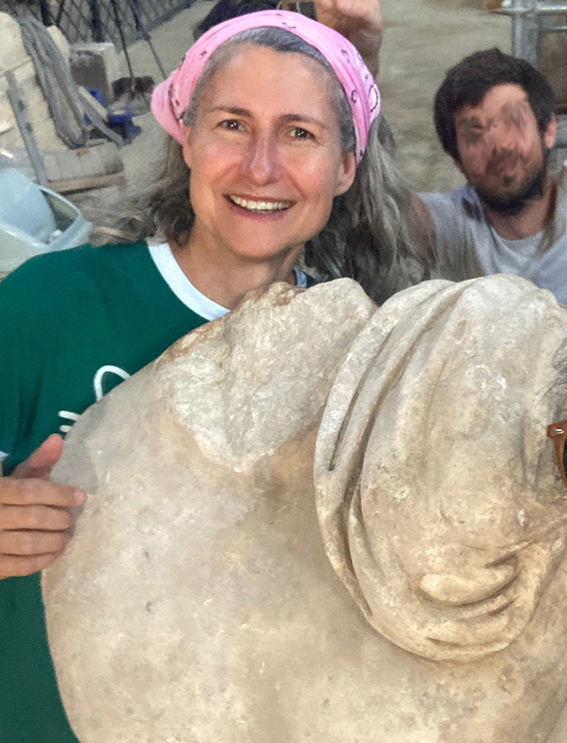
Julia Lenaghan is Senior Research Fellow in the Department of Cultures and Civilizations and is working on the portraiture of the Antonine period for the RESP project. She holds a Ph.D. in Classical Archaeology from the Institute of Fine Arts, New York University and a B.A. in Classical Languages from Princeton University. Her specialty is sculpture, from ancient Greece to Late Antiquity. Her publications range from contributions on Roman portraiture to plaster casts of the 18th and 19th c. At the University of Oxford she has worked in the Cast Gallery at the Ashmolean Museum, on the Last Statues of Antiquity project, and on the Aphrodisias excavations. She has also worked at the Royal Academy of Arts in London on its plaster cast collection, with Cliveden Conservation on the handling of sculptural pastiches, and for the Museum for Classical Art of Mougins. Her teaching experience includes general courses in classical studies and art history at John Cabot University in Rome and at the University of California, Irvine. Her interests and research have been shaped by her long participation (staff member since 1994) in the joint Oxford and New York University Aphrodisias Excavations, now a UNESCO world heritage site.
Francesca Bologna
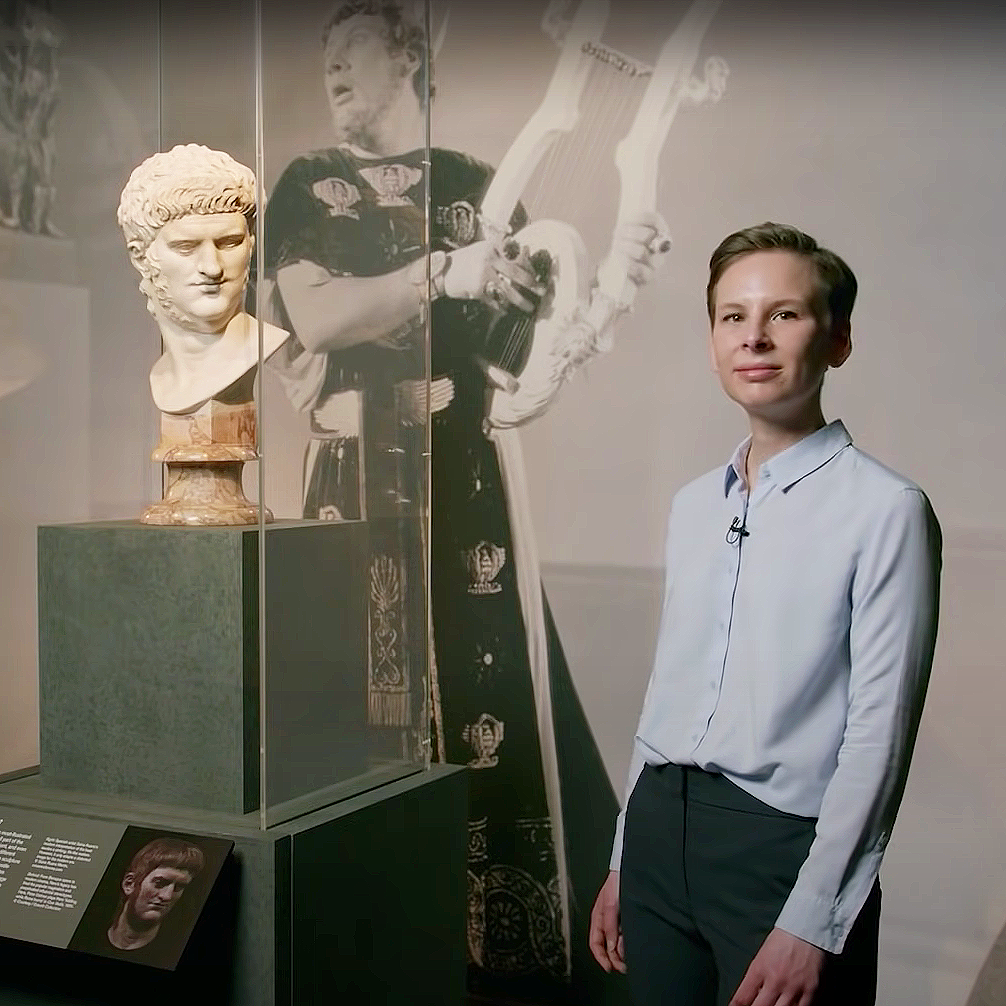
Francesca Bologna is currently a Research Fellow in the Department of Cultures and Civilizations and is working on the portraits of the Severan period for the RESP project. She holds a BA in Ancient History and a MA in Archaeology at the University of Bologna. She completed her PhD at King’s College London in 2018, with a thesis focusing on Roman wall painters and their working practices in the city of Pompeii. Between 2019 and 2021 she worked at the British Museum as Project Curator for the exhibition Nero: the man behind the myth. Thereafter she continued to work in the heritage sector as a Communications Officer for MOLA (Museum of London Archaeology). In addition, between 2017 and 2021, she taught Roman archaeology at King’s College London and at Royal Holloway, University of London. Her research focuses on ancient craft production, particularly its economics, workforce organisation, and the social status and mobility of craftspeople in antiquity. She is passionate about stimulating public interest in cultural heritage and is committed to making archaeology accessible and relevant to diverse modern audiences.
Raffaella Bucolo
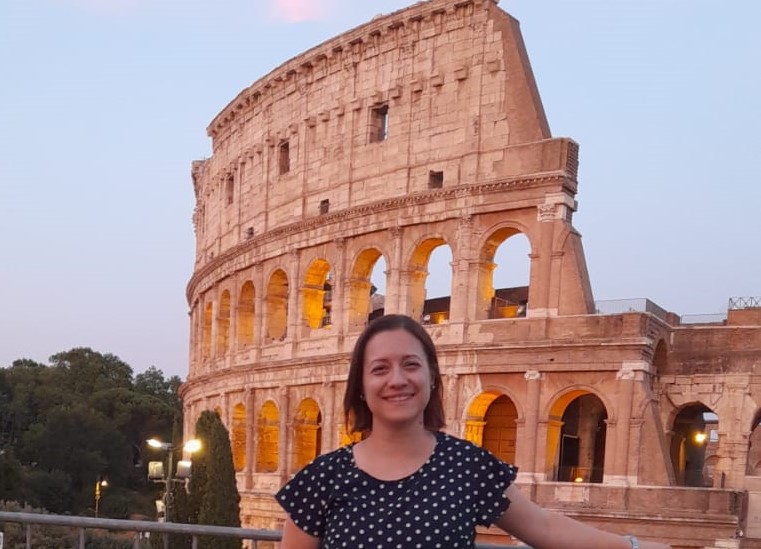
Raffaella Bucolo is Research Fellow in the Department of Cultures and Civilizations and is working on the portraiture of the Trajanic and Hadrian periods for the RESP project. She is a classical archaeologist specialised in Greek and Roman sculpture and historic collections of antiquities. She holds a BA/MA in Archaeology from Sapienza University of Rome, a Degree in Christian Iconography from the Pontifical Institute for Christian Archaeology and a PhD in Classical Antiquities and their Traditions from University of Rome Tor Vergata. Her interests and publications focus on Roman art, collections of antiquities and the role of artists, antiquarians and scholars of the past in the development of archaeological disciplines. Raffaella was appointed Research Fellow (2016-2017) at Sapienza University for the project “Villa Wolkonsky’s Antiquities Collection” in collaboration with the British School at Rome and the British Embassy in Rome. For the Villa Wolkonsky project she also spent time as scientific Researcher for the Deutsches Archäologisches Institut Photographic Archive and received a Post-Doctoral Fellowship as Guest Researcher at DAI Zentrale in Berlin. In 2020-2022 she was appointed Research Fellow of Sapienza University where she was engaged in the study and the enhancement of the Museum of Classical Art’s cast collection. Based in Rome, she is Research Fellow of the British School at Rome and lectures in the department of the History of Archaeology at University of Rome Tor Vergata.
Giorgia Cafici
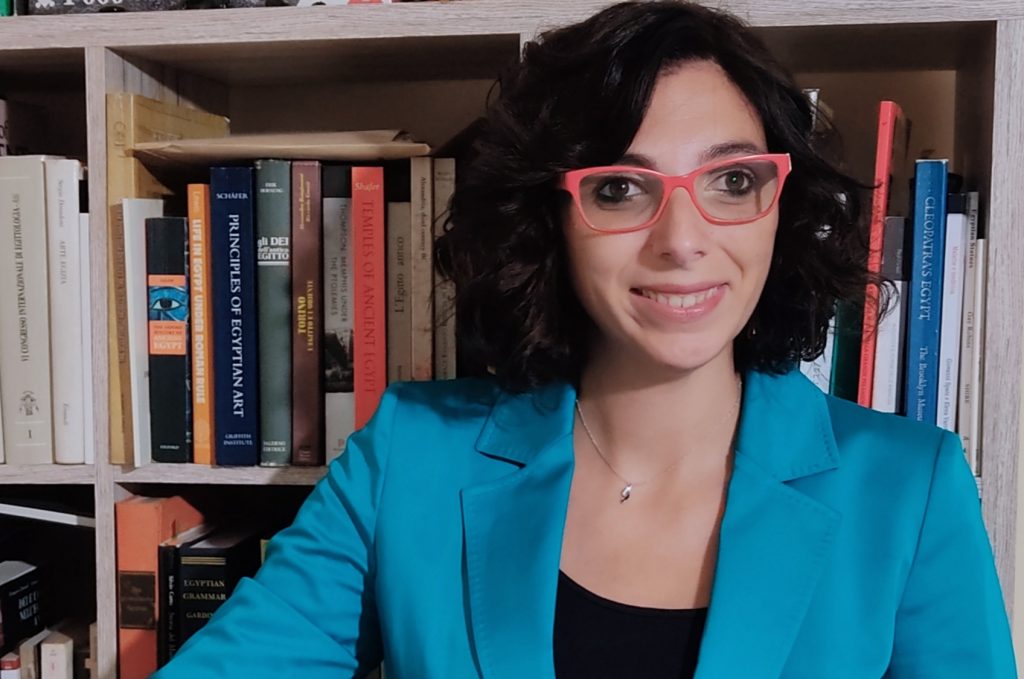
Giorgia Cafici is Research Fellow in the Department of Cultures and Civilizations and is working on female portraiture of the third century for the RESP project. She is an Egyptologist and classical archaeologist specialized in Ptolemaic and Roman portraiture. Her main fields of interest rest within Ptolemaic Egypt, Egyptian art, Roman sculpture, and in archival research and digital humanities. She received a BA in Classics (Archaeology) from the University of Catania and an MPhil in Oriental Studies (Egyptology) from the University of Pisa. In 2011 she was awarded a PhD fellowship at the Scuola Normale Superiore in Pisa during which she conducted research at the École Normale Supérieure of Paris, at the Brooklyn Museum in New York, and at the University of Oxford. Her doctoral dissertation The Egyptian Elite as Roman Citizens. Looking at Ptolemaic Private Portraiture was published by Brill as a Harvard Egyptological Studies monograph in 2021. In 2018 she returned to the Scuola Normale Superiore, Pisa, as Research Fellow, studying the Antiquities collections in Turin’s museums. She has archaeological experience in Italy and Egypt where she has served as the Assistant to the Director of the Italian Archaeological Centre, Cairo, and has taught Egyptology at the Universities of Pisa and Catania. Former President of the Centro Italiano di Egittologia “Giuseppe Botti”, she also served as Director of the Musei Civici di Vizzini (CT, Sicily).
Hristina Ivanova-Anaplioti
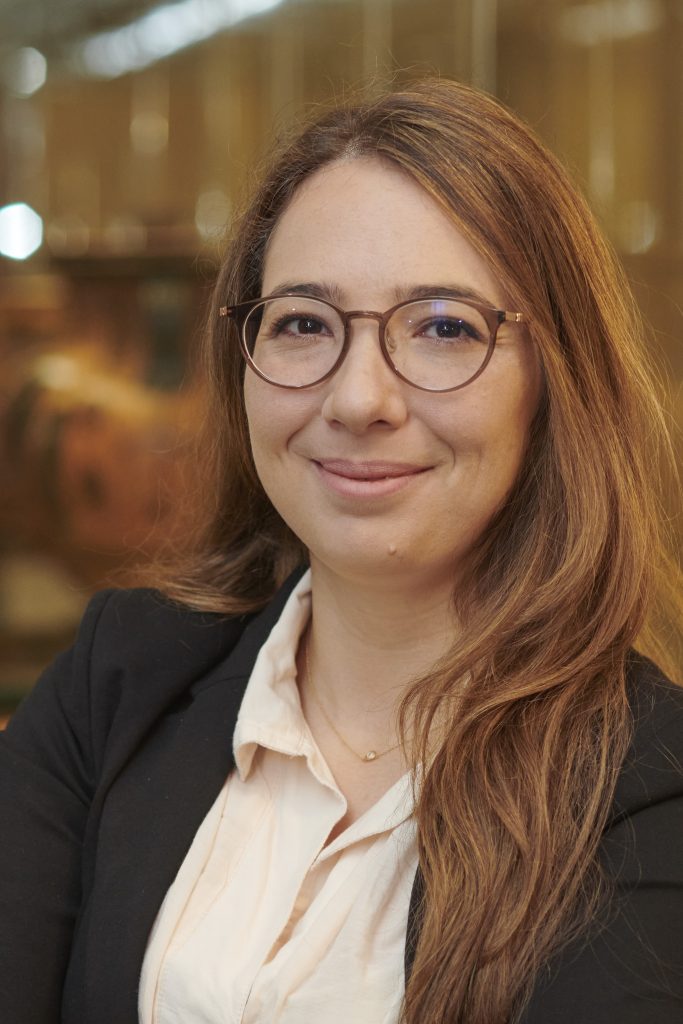
Hristina Ivanova-Anaplioti is a Research Fellow in the Department of Cultures and Civilizations and is working on the portraiture of Septimius Severus and Caracalla for the RESP project. She is a classical archaeologist specialised in ancient numismatics. Her research interests include Greek and Roman Provincial Numismatics, especially in Thrace, Macedonia and Greece, coin finds and circulation, digital numismatics, field archaeology, space syntax analyses, Greek sanctuaries, and various stylistic and iconographic subjects. She studied Classical and Near Eastern archaeology at the universities of Heidelberg, Athens, and the Humboldt University of Berlin, where she defended her PhD thesis including a die study of the complete coinage of Apollonia Pontica. She has worked as a student assistant for Corpus Nummorum, a research assistant at the German Archaeological Institute for the projects Kalapodi and Samos, an assistant and postdoc researcher at the University of Zurich, as well as for the Archaeological Services of St. Gallen. She is collaborating with the projects Corpus Nummorum, Measuring Ancient Thrace, Ancient Coin Counterfeit Scientific Network and is the head of the digital numismatics team of the project Upgrading the Historical Narrative: DigiDeultum.
Nisan Lordoğlu
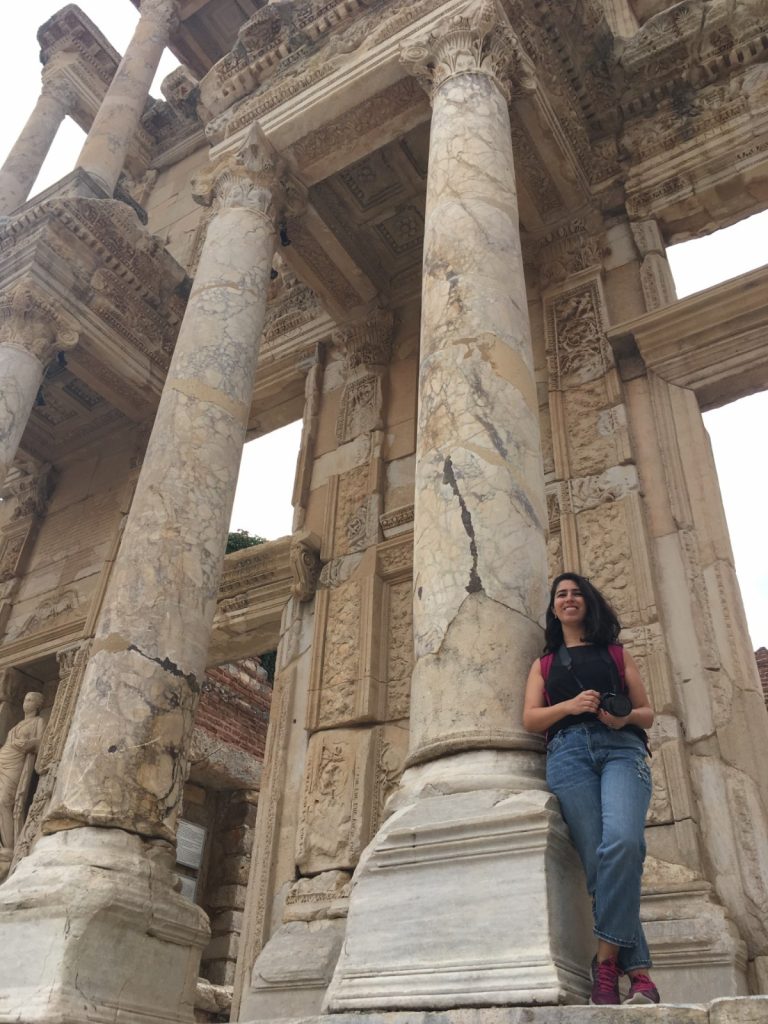
Nisan Lordoğlu is a Research Fellow in the Department of Cultures and Civilizations, working on Julio-Claudian and Flavian portraiture from Asia Minor for the RESP project. She earned her PhD in Classical Archaeology from the University of Hamburg, Germany, in 2024, with a dissertation titled “Reused Sculptures of Ephesos”. Her academic journey included a PhD scholarship at the University of Oxford and the Austrian Academy of Sciences, Austrian Archaeological Institute. She completed her BA and MA degrees in Classical Archaeology at Istanbul University. Her fieldwork experience includes participation in the excavations of Ephesos, Aphrodisias, and Miletos, where she specialized in the study of sculptures. She also served as vice director of the Miletos excavations, and responsible for the sculpture depots. During her doctoral studies, she taught at the University of Hamburg, offering seminars on sculptures from the Archaic period to Late Antiquity, working techniques of marble sculptures, and the archaeological contexts of statues.
Riccardo Bartolomioli
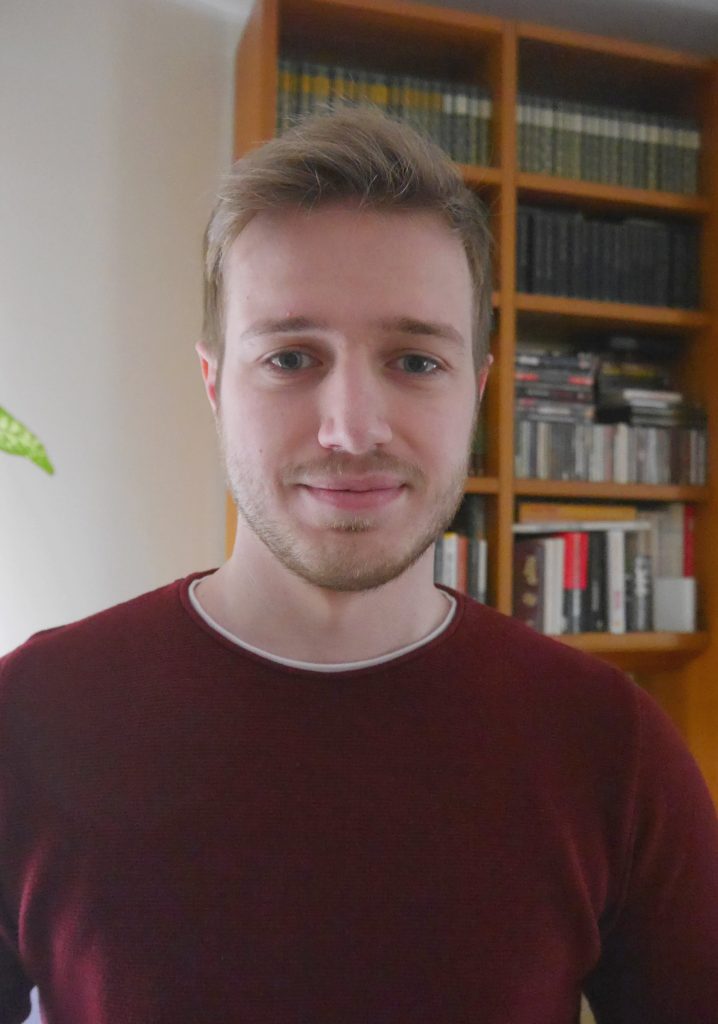
Riccardo Bartolomioli is a Research Fellow at the Department of Civilizations and Cultures, working as a specialist in the analysis, modeling, and processing of 3D images generated from digital scans of archaeological artifacts, with particular emphasis on Roman coinage. His assignment involves researching methodologies and implementing semi-automatic systems for generating full 3D faces of Roman emperors from their representations on ancient coins. He received his bachelor’s degree in computer science in 2020 and his master’s degree in engineering and computer science (Visual Computing specialization) in 2022, both from the University of Verona. His main fields of interests rest within statistical learning (mainly deep learning), computer vision, and 3D data processing.
Federico Masi
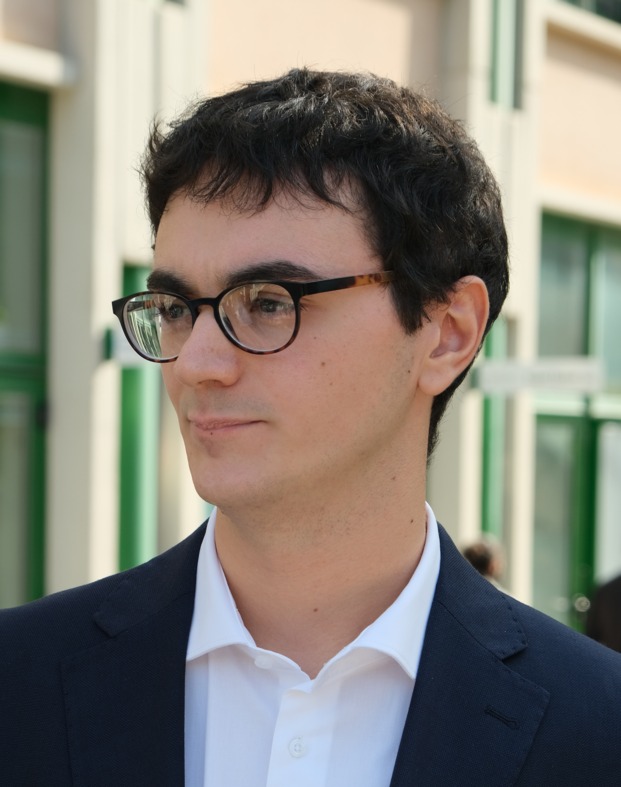
Federico Masi is a Research Fellow at the University of Verona, specializing in deep learning, computer vision, and geometry processing. He is currently contributing to the RESP project, where he is developing advanced methodologies for generating 3D reconstructions of Roman emperors’ faces, combining historical data and modern computational techniques.
He holds a Master’s degree in Computer Science and Engineering from the University of Verona, where his academic work focused on cutting-edge applications of artificial intelligence. Federico has also gained experience in the medical domain, particularly in the development and application of deep learning methods for medical imaging, tackling challenges such as image segmentation and analysis.
His research interests span a wide range of topics, including the intersection of artificial intelligence with cultural heritage and the use of neural networks for 3D modeling.
Tinsae Gebrechristos Dulecha
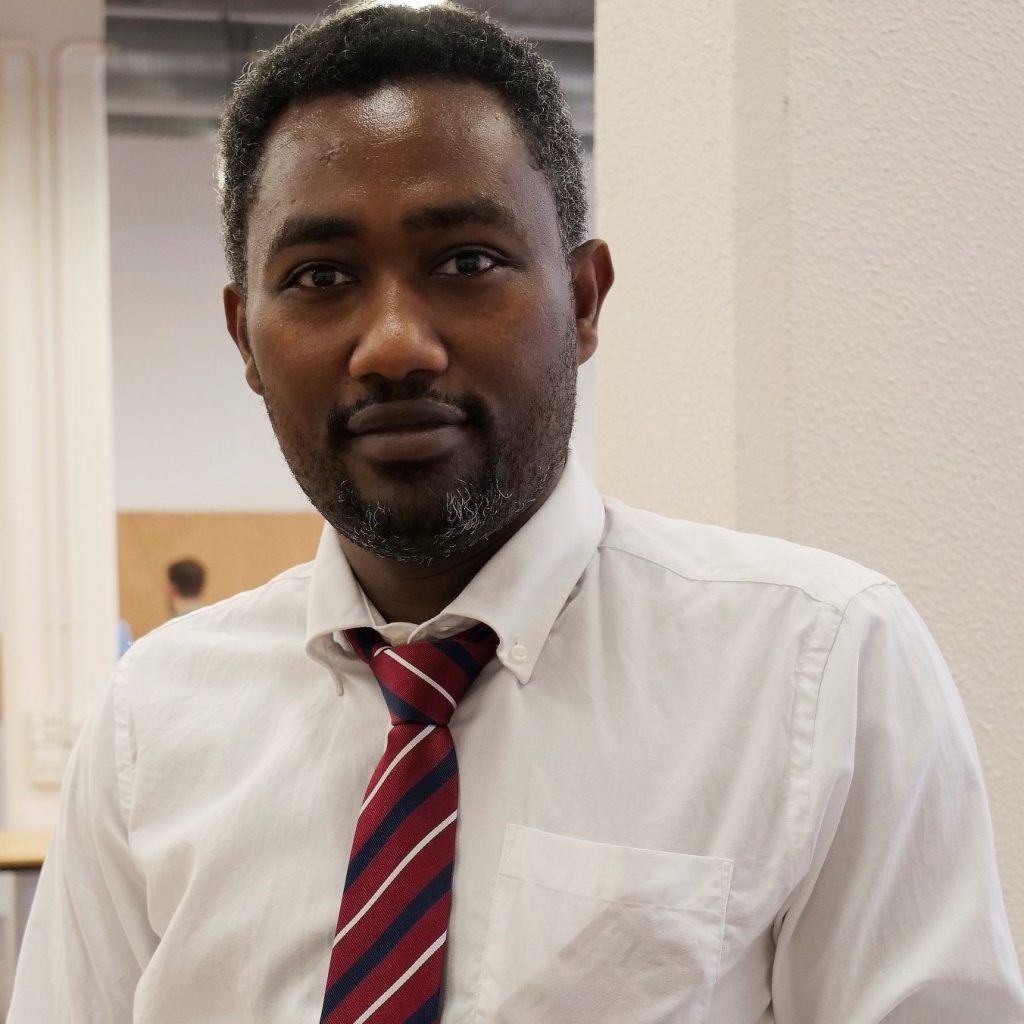
Tinsae Gebrechristos Dulecha is Research Fellow in the Department of Cultures and Civilizations working as the RESP Digital Humanities Project Officer. Having received a BSc Degree in Computer Science from Hawassa University (Ethiopia) in 2007, he joined Ca’Foscari University (Venice) in October 2012, obtaining an MSc in Computer Science in October 2014. He then won a 1-year research fellowship to work on the project Augmented reality framework for museums at IUAV University of Venice. In March 2015 Tinsae returned temporarily to Ethiopia to work as a Lecturer at Hawassa University, Institute of Technology, School of Informatics. He then returned to Ca’Foscari University in October 2016, having won a 1-year research fellowship to work on the project Automated inventory of a cooler at the European Center for Living Technology (ECLT). In 2021 Tinsae received a PhD in Computer Science from the University of Verona with a dissertation on appearance-measurement and analysis using multi-light image collections. During his Ph.D. research, he used deep-learning and machine-learning techniques to solve different material-appearance analysis problems. His research interests and publications rest within the areas of Measurement, Analysis, and Modelling of Material Appearance, Machine Learning, Computer Vision and Reflectance Transformation Imaging for Cultural Heritage applications.

King's College London
Dr Will Wootton
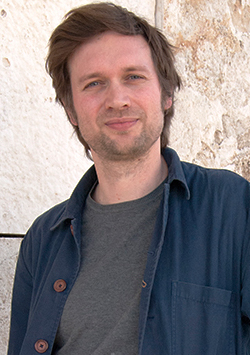
Will Wootton is Reader in Classical Art and Archaeology and Senior Lecturer in Roman Art and Head of the Classics Department. He holds a BA in Classics at Bristol University and a MPhil and a DPhil in Classical Archaeology at Oxford University. His research crosses the disciplinary boundaries of archaeology, art history, ancient history, digital humanities and contemporary heritage matters, focusing especially on craft production in antiquity. He is particularly interested in the intersections between materials and techniques, craftsmen and patrons, and the impact of time, place and society on things made. Will has worked extensively on the making of mosaics from the Hellenistic period into Late Antiquity and he is fascinated by process and the practical aspects of making, hence his involvement in various craft-based projects. These include The Art of Making in Antiquity: Stoneworking in the Roman World, funded by the Leverhulme Trust, the heritage project Conserving and Managing Mosaics in Libya, funded by the Getty Foundation, the Training in Action project, funded by the British Council, the Ancient Itineraries project and a new conservation project with the Libyan Department of Antiquities focused on the management of World Heritage sites, which is funded by the ALIPH Foundation.
Francesca Lam-March
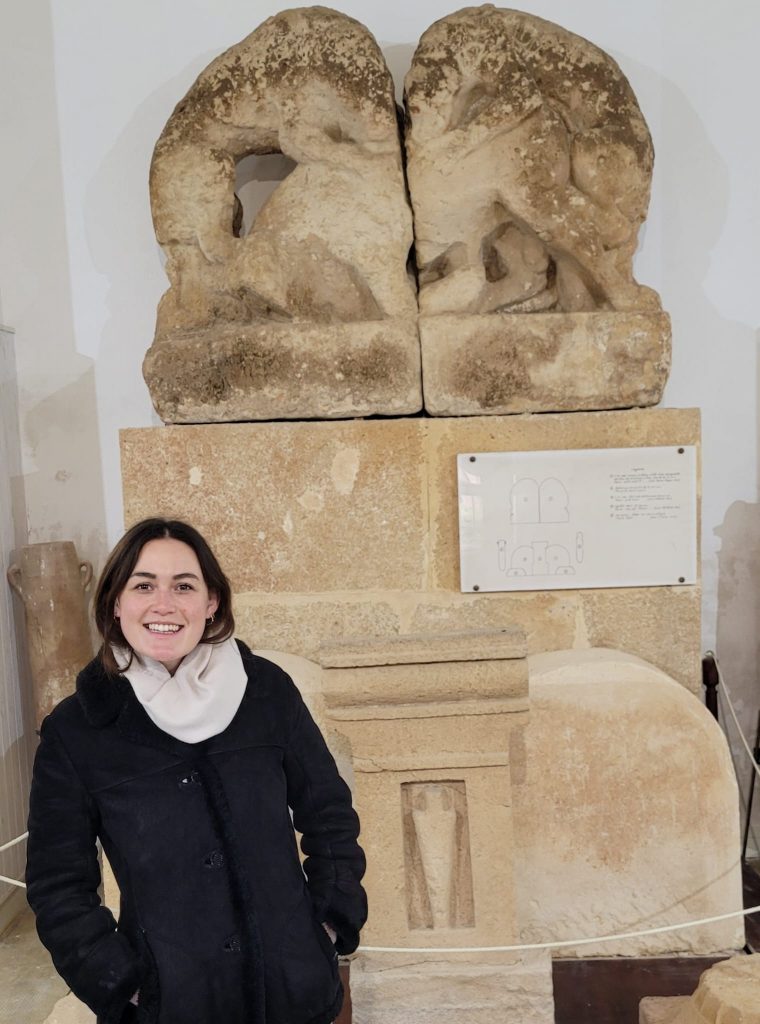
Francesca Lam-March is a PhD student at the Classics Department at King’s College London. She has a background in history and classical archaeology. Francesca holds a Bachelor of Arts degree in History with French from the University of Greenwich and a Master of Arts degree in Classical Archaeology from Durham University. During her time at Durham, Francesca focused her research on Roman funerary sculpture across the empire before focusing on Romano-British mausolea for her dissertation. Between 2020 and 2022, she worked in commercial archaeology gaining experience excavating across Lincolnshire and the surrounding counties. She also spent some time with the post excavations team working on processing and illustrating finds, particularly pottery.

The University of Warwick
Prof Mark Williams
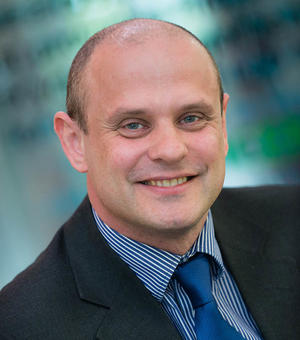
Mark Williams is Head of the Metrology and Visualisation research group at Warwick Manufacturing Group (WMG) and Principal Investigator of the High-Resolution X-ray CT scanning work. He holds an honours degree in Mechanical Engineering, a Masters in Manufacturing Technology and a PhD from the University of Manchester Institute of Science and Technology (UMIST). He is also a Chartered Engineer with the UK Engineering Council with over 20 years experience working in the Automotive, Aerospace, Defence and Healthcare sectors, and a Fellow of the Institution of Mechanical Engineers (IMechE). He is an international expert in measurement systems and 3D scanning technology. His research has been applied across a range of industry sectors, including automotive, aerospace and forensics, but has recently expanded into digital conservation within Heritage and Archaeology sectors and Museology. Mark and his team have contributed to the Cambridge Fitzwilliam Museum’s project Michelangelo – A Discovery and they have worked in partnership with the Museum of Natural History at Oxford University. This work included the CT scanning and visualisation of important specimens such as the ‘Oxford Dodo’ and the type specimen of Megalosaurus, and research into the application of industrial product evaluation techniques to museums. Mark has also been involved in the development of major displays and exhibitions including ‘Brain Diaries’ and ‘Out of the Deep’.
Mike Donnelly
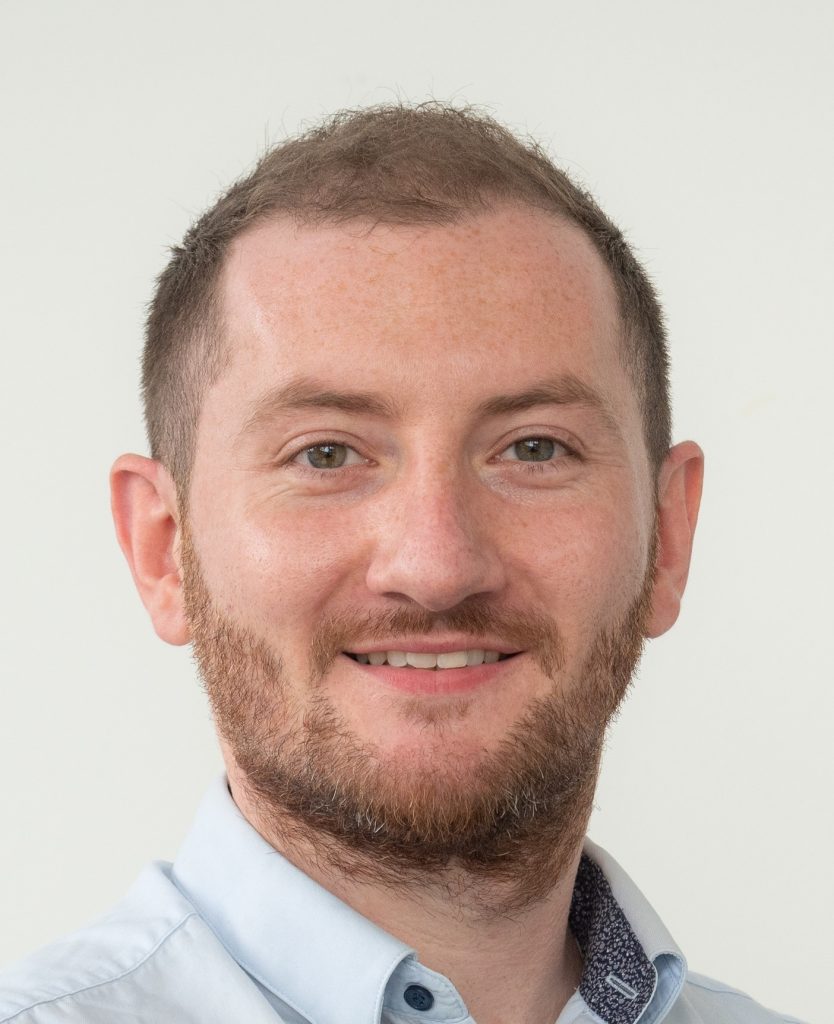
Mike Donnelly is Lead Engineer in the Metrology and Visualisation research group at Warwick Manufacturing Group (WMG). He holds an MEng in Engineering at the University of Warwick and has over 10 years’ experience in the application of cutting-edge scanning technology. His work intersects both the academic and industrial sectors, ranging from automotive manufacturing and materials science to police forensic investigation. Recently, his work has crossed over into the realms of digital conservation in archaeology, art history, ancient history, and cultural heritage, scanning artefacts and architecture in locations such as the Museum of Natural History at Oxford University and the British Museum in London. Notable previous work includes scanning the entirety of Well’s Cathedral, UK to provide an online virtual experience through the creation of a photorealistic 3D model, as well as for building conservation purposes.
Paul Wilson
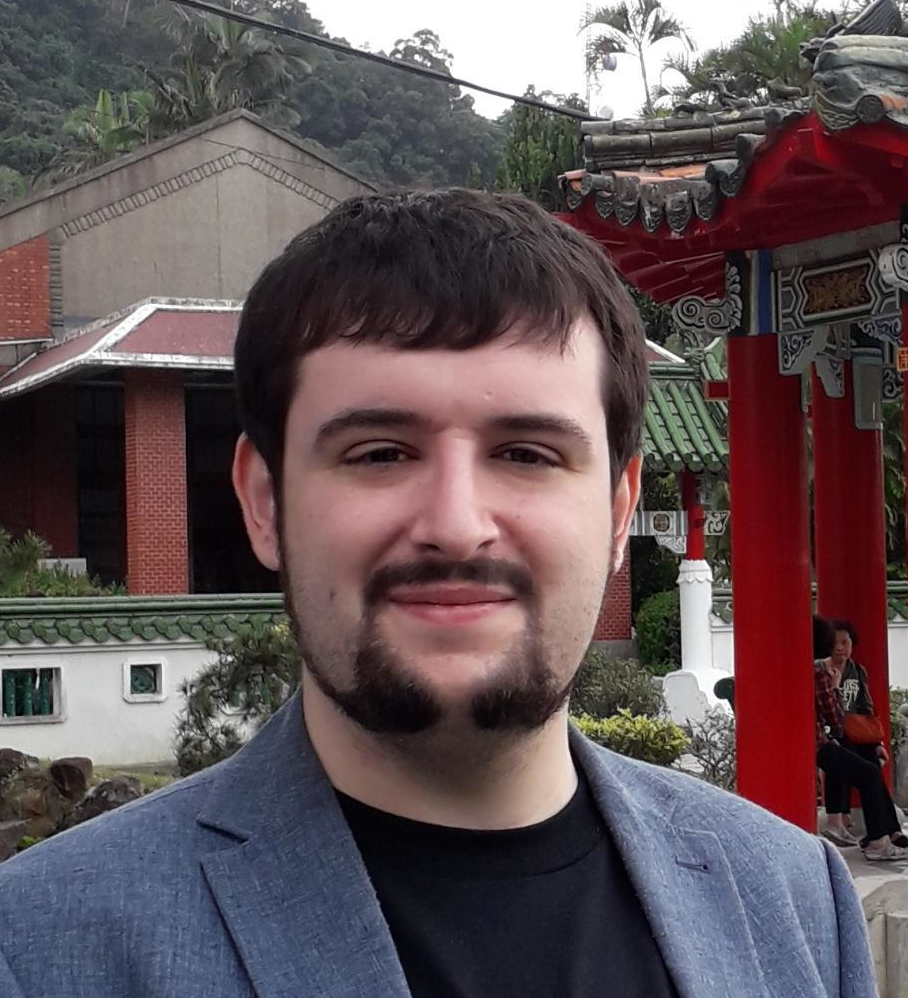
Paul Wilson works at the Centre for Imaging, Metrology, and Additive Technologies (CiMAT) at the University of Warwick as a Research Fellow (X-Ray CT Specialist). They work with the National Facility for X-Ray Computed Tomography (NXCT) where they support a diverse range of research applications from a broad variety of subject areas, including palaeontogy, cultural heritage, and industrial applications. Paul is particularly interested in both palaeontology and cultural heritage, having completed a Bachelor’s degree in Geology, a Master’s degree in Palaeontology, and a PhD in Engineering from the University of Warwick. Their current research remit is broad, with a focus on data quality in palaeontological research, conservation in cultural heritage, and materials characterization for engineering applications.Paul is experienced with a wide variety of different visualization and digitization technologies, mainly specialising in the interdisciplinary application of x-ray computed tomography (XCT) but also including laser scanning, photogrammetry, SEM, and XRF.
